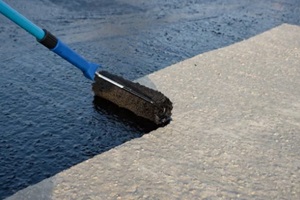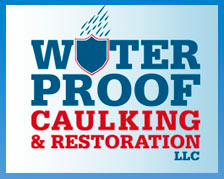Commercial buildings in New Jersey can be made of various materials, from stone to brick or even stucco. While every material has its pros and cons, what remains the same for all of them is their vulnerability to the changing weather across the year.
New Jersey’s climate fluctuates between snowy cold, blazing sun, and heavy rain—which means any structure must be adaptable to survive. The good news is that NJ commercial waterproofing is one method of increasing a building’s longevity to stand up to these and other challenges.
The right type of waterproofing for a structure will vary heavily depending on that structure’s unique features. Everything from where it is built to what it is used for will factor into the decision.
Here is an overview of four proven NJ commercial waterproofing solutions to protect your investment in your building and how they work so that you can make an informed decision. Remember, an expert can always visit your building to provide a customized recommendation that suits you!
Why Bother With Waterproofing?
Before deciding which type of waterproofing is ideal for your structure, you’ll need to understand how waterproofing functions and why it is worth the investment.
Some building owners neglect waterproofing services because they do not want to add them to the budget; however, failure to protect a building against the threat of water can degrade the structure over time, leading to more costly repairs in the future.
When water penetrates through cracks, gaps, and porous surfaces, it expands and contracts as the temperature changes. This gradually pushes the building’s materials apart, worsening these gaps until they become cracks that threaten the structural integrity of the building.
Additionally, the moisture creeping inward can promote the growth of mold, which may go entirely undetected until it is severe enough to rot the wooden framework of the structure. Mold remediation is expensive and complicated, meaning the building will likely need to be shut down and business processes halted.
Add to this the increased sick days employees will be taking as the mold spores circulate through the HVAC system, and it quickly becomes clear that waterproofing is not just good for the building—it’s good for business, too.
Built-In Waterproofing
One of the simplest ways to achieve a waterproofed building is to start with waterproof materials. Certain types of concrete are made with a modified molecular structure that inherently repels water.
Those who are still in the construction phase of commercial building ownership can consider these materials to address water issues permanently because the structure of the material is waterproof on a microscopic level; cracks or chips will not threaten the waterproofing once the building is constructed.
Liquid Membrane Waterproofing
A common option for commercial waterproofing in New Jersey, liquid membranes can be sprayed or affixed to materials to provide a shield against water. They are typically made from flexible materials that can expand and contract with the weather, so they remain adaptable no matter the climate.
Liquid membranes adhere best to materials with some texture, such as concrete and wood. Still, they can be used on almost anything, including metal. As an added benefit, liquid membranes are UV resistant, so they can survive regular sun exposure without degrading.
Cementitious Waterproofing
Those looking for an inexpensive option can consider cementitious waterproofing, which involves coating an area or a vulnerability with cement. However, this strategy comes with disadvantages for many applications.
Cement is not flexible, so waterproofing a foundation or other area exposed to shifting or expansion will quickly result in cracks and cement degradation. Cementitious waterproofing is a quick fix until a more permanent solution can be installed. However, some areas are a good match for cement.
Bituminous Waterproofing
 Bitumen is a mix of polymers that rejects water; people commonly know it as asphalt. Applying bituminous waterproofing is labor-intensive, but the material is suitable for many challenging locations, such as below-ground foundation areas and roofs.
Bitumen is a mix of polymers that rejects water; people commonly know it as asphalt. Applying bituminous waterproofing is labor-intensive, but the material is suitable for many challenging locations, such as below-ground foundation areas and roofs.
It can even be used in basements and other areas that regularly suffer from damp air. Still, the building may need to shut down for a day or two to keep visitors and employees away from the harsh fumes.
Find the Right Commercial Waterproofing Solution for Your New Jersey Structure
If you are considering waterproofing solutions for your NJ commercial building, you have multiple options. However, you do not need to make this determination on your own.
The experts at Waterproof Caulking & Restoration can guide you through your options and recommend a solution that fits your circumstances and your budget. Contact Waterproof Caulking & Restoration to schedule an appointment.
